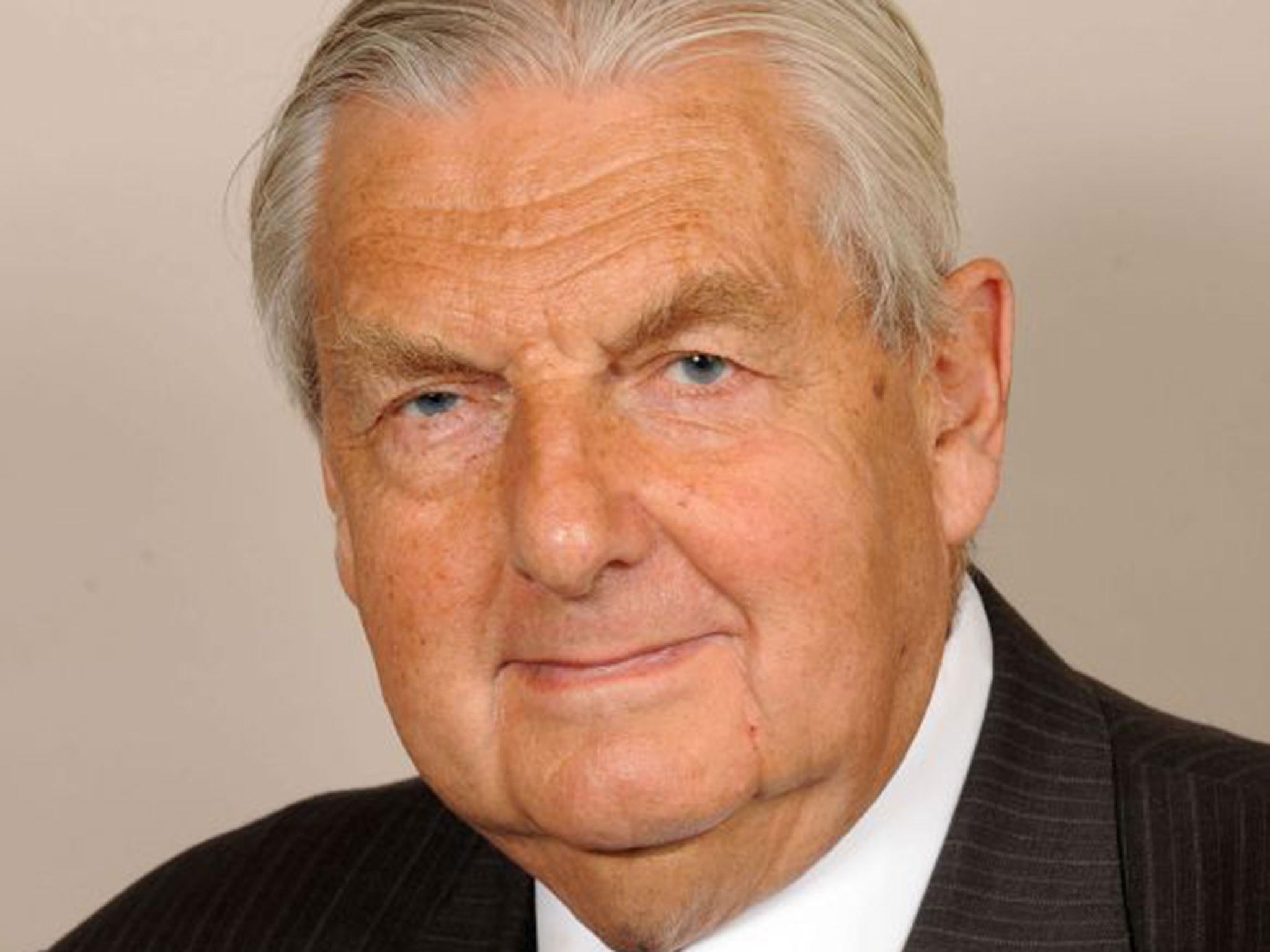Former Conservative Cabinet minister Lord Mayhew dies aged 86
The peer was a key figure in ceasefire negotiations with the IRA

Former Conservative Cabinet minister Lord Patrick Mayhew, who served as attorney general and Northern Ireland secretary during critical events for both posts, has died at the age of 86.
In a statement, his family said he died peacefully at his home in Kent on Saturday, adding: "He had lived with cancer and Parkinson's for several years. He worked hard for peace in Northern Ireland."
Lord Mayhew was a key figure in the December 1993 Downing Street Declaration, formulated by then prime minister John Major and then Irish taoiseach, Albert Reynolds, which led to the IRA ceasefire the following September.
He was also the subject of controversy for his decision not to prosecute in alleged shoot-to-kill cases in Northern Ireland.
He is survived by his wife Jean Mayhew, their four sons and their families.
The peer was the longest ever serving Secretary of State for Northern Ireland, working in the position from 1992 - 1997.
He was also the first ever MP for the Tunbridge Wells constituency, representing the area from its inception at the Februaury 1974 general election. He continued to represent Tunbridge Wells until 1997.
Greg Clark, the current MP for the constituency, paid tribute to him on social media:
Other people also paid their respects:
Mayhew became attorney-general in 1987 and was involved in a series of contentious issues during his tenure. These included demands for the extradition of terrorist suspects from the Irish Republic, and his decision not to prosecute in alleged shoot-to-kill cases.
This brought him unpopularity in Dublin and a reputation as a disdainful, high-handed and haughty man.
Throughout this period he remained unemotional and steadfast through some of the most vicious terrorist attacks the Province had seen in 25 years of the troubles.
And he was particularly outspoken about Dublin's continued territorial claim, in its constitution, on the six counties of the North.
It also came to light that there had been secret contacts between the government and the IRA, and Mayhew published a lengthy dossier of the written exchanges.
But he worked assiduously with the British prime minister, with Irish taoiseach Albert Reynolds and Dick Spring, the then Irish foreign minister, to achieve the Downing Street agreement of December, 1993.
There was a delay of nine months while the IRA continually sought "clarification" of the document: a plea which Britain regarded not as a request for clarification but for renewed negotiations which Whitehall was not going to allow.
But finally the breakthrough came, with the IRA ceasefire and the subsequent lifting of the ban on the broadcast voices of IRA and other paramilitary sympathisers.
And although hard-line Unionists were deeply suspicious it appeared as though Sinn Fein was coming towards the legitimate constitutional fold of Ulster politics.
Mayhew was normally impeccably diplomatic, but there was one rare and uncharacteristic gaffe for which he had to apologise publicly and profusely.
He was with the prime minister in June, 1993, awaiting the start of a performance in Northern Ireland of Donizetti's Lucia di Lammermoor. When a reporter questioned him about a grenade attack that day in Belfast which had injured nearly 30 people, he quipped: "No, nobody dead. At the end of this opera, everybody's dead."
Mayhew said later that he much regretted any distress he had caused by this remark.
Press Association contributed to this report
Join our commenting forum
Join thought-provoking conversations, follow other Independent readers and see their replies
Comments